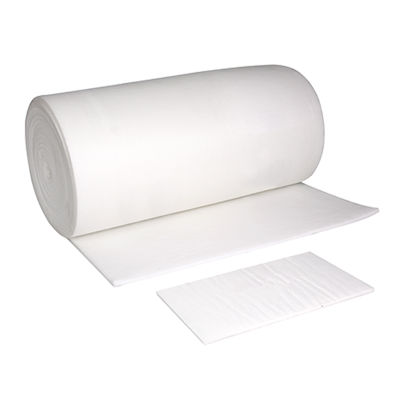Apr. 12, 2023
Environment
Cotton is a natural fiber widely used in the textile industry. It is soft, comfortable, and breathable, making it ideal for clothing and other textile products. In recent years, cotton has also been explored as a potential air filter due to its high surface area and ability to trap particles. In this essay, we will explore whether cotton is a good air filter.

Cotton is composed of cellulose, a complex carbohydrate that makes up the primary structural component of plant cell walls. It is a soft, fluffy fiber that grows in a protective case, or boll, around the seeds of the cotton plant. Cotton fibers are strong, durable, and have a high surface area, which makes them an attractive option for air filtration.
Air filters are used to remove impurities from the air, such as dust, pollen, and other airborne particles. There are various types of air filters, including mechanical, electrostatic, and hybrid filters. Mechanical filters work by physically trapping particles in the filter media, while electrostatic filters use an electrical charge to attract particles. Hybrid filters combine both mechanical and electrostatic filtration methods.
Cotton is a mechanical filter, meaning it physically traps particles in the fibers of the filter media. Cotton fibers have a high surface area, which allows them to capture particles as they pass through the filter. The size and shape of the particles can affect the filtration efficiency of the cotton filter. Generally, cotton filters are most effective at trapping large particles, such as dust and pollen.
Several studies have been conducted to evaluate the effectiveness of cotton filters as air filters. In one study, researchers tested different types of cotton fabrics for their filtration efficiency. They found that cotton fabrics with a higher thread count and tighter weave had better filtration efficiency than those with a lower thread count and looser weave. However, even the most effective cotton fabric tested had a lower filtration efficiency than commercial air filters.
Related links:Another study evaluated the effectiveness of cotton filters for filtering smoke particles. The researchers found that cotton filters were effective at removing smoke particles from the air, but only when the smoke concentration was low. When the smoke concentration was high, the cotton filter became saturated quickly and lost its effectiveness.
Cotton filters have several advantages over other types of air filters. Firstly, cotton is a natural, renewable resource, making it an environmentally friendly option. Cotton filters can also be easily recycled, further reducing their environmental impact. Secondly, cotton is a breathable material, which means it allows air to pass through easily. This makes cotton filters ideal for applications where air flow is important, such as in HVAC systems.
Cotton filters are also easy to clean and maintain. They can be washed and reused multiple times, which reduces the cost of replacement filters. Additionally, cotton filters are biodegradable, meaning they will eventually decompose and not contribute to the buildup of waste in landfills.
While cotton filters have several advantages, they also have some disadvantages. One of the main disadvantages is their limited filtration efficiency compared to commercial air filters. Cotton filters are most effective at trapping large particles, but they are less effective at capturing smaller particles, such as bacteria and viruses.
Cotton filters are also more susceptible to moisture damage than synthetic filters. Moisture can cause cotton fibers to clump together, reducing their effectiveness as an air filter. This can be a concern in humid environments or in applications where the filter may be exposed to moisture.
If you are interested in sending in a Guest Blogger Submission,welcome to write for us!
All Comments ( 0 )